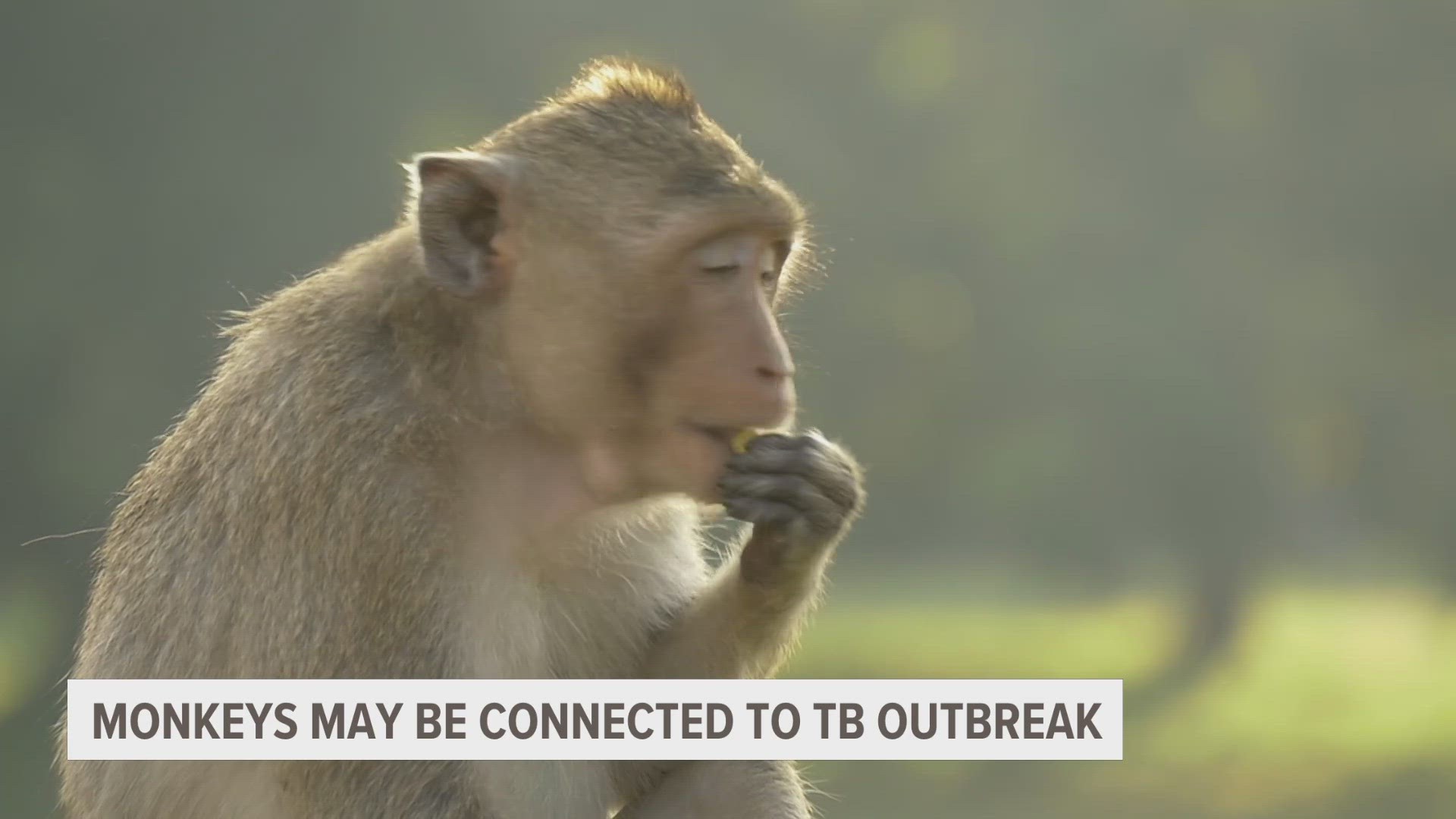NORTON SHORES, Mich — A small number of Michigan laboratory workers and monkeys used for biomedical research tested positive for tuberculosis earlier this year, state regulatory agencies confirmed.
The Michigan Department of Agriculture and Rural Development (MDARD) said they responded to a tuberculosis (TB) outbreak at a laboratory in Michigan involving at least three macaques, a FOIA request PETA obtained details.
Macaques are a species of monkey found throughout Asia, North Africa, and Europe. MDARD said the macaques involved in the outbreak were wild and caught in Mauritius, an island off the South-Eastern coast of Africa. The monkeys were then imported into Florida and then imported into Michigan.
The Michigan Department of Health and Human Services would not share the location of the facility but did say about 90 workers at the lab were tested for TB.
Of those workers, about 2% tested positive, and none of them were experiencing symptoms. They were referred to health care treatment options.
"There is no data to tie these cases to exposure at the facility. The background rate for TB in the U.S. is 4%. It is likely the prompt identification and quarantining of the symptomatic animals may have prevented the potential for transmission to both people and other animals," a spokesperson for MDHS said.
PETA says staff at Northern Biomedical Research in Norton Shores confirmed to them that it was the facility affected.
The Norton Shores lab did not confirm cases of tuberculosis at the facility with 13 ON YOUR SIDE but did say as a general practice the company regularly tests staff for the infectious disease.
"We do not comment on specific business activities at our facility to protect client confidentiality and employee privacy. As a general matter, exposure to TB is a health concern in the federally mandated research and development of critical human treatments and cures. As a regular precaution, we require negative TB tests for all employees to protect them and our research models from disease. Additionally, we proactively test for many zoonotic diseases in our research models to identify, and treat as early as possible, any latent infections brought into our laboratories from outside, federally licensed suppliers. NBR requires all staff to use Personal Protective Equipment (PPE) as one level of protection to create an effective barrier against the transmission of any zoonotic disease. All of our research activities are highly regulated by federal, state and local authorities in order to protect our employees and our primates."
The Northern Biomedical Research facility's website says it has the capacity for about 350 non-human primates.
According to the FOIA request, there were also additional primates exposed that are now under quarantine, and "other animals associated with the importation from Mauritius to the United States were also found to have tuberculosis."
In 2022, about 8,300 cases of TB were reported in the United States.
►Make it easy to keep up to date with more stories like this. Download the 13 ON YOUR SIDE app now.
Have a news tip? Email news@13onyourside.com, visit our Facebook page or Twitter. Subscribe to our YouTube channel.
Watch 13 ON YOUR SIDE for free on Roku, Amazon Fire TV Stick, and on your phone.

